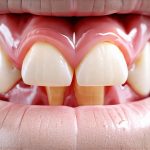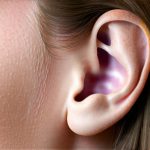Gastroesophageal reflux disease (GERD), commonly known as acid reflux, is a condition affecting millions worldwide. It’s characterized by stomach acid frequently flowing back up into the esophagus – the tube connecting your mouth to your stomach. While heartburn and indigestion are the most recognized symptoms, GERD can manifest in surprising ways, often leading individuals to seek answers for seemingly unrelated issues. One such manifestation is an itchy throat, a symptom that many don’t immediately associate with digestive health, but which can be a significant indicator of underlying reflux. Understanding this connection is crucial for effective management and relief.
The link between GERD and an itchy throat isn’t always straightforward; it’s often subtle and may not present alongside classic heartburn symptoms – a phenomenon known as “silent reflux” or Laryngopharyngeal Reflux (LPR). This can make diagnosis challenging, as individuals might attribute the itchiness to allergies, dry air, or even a common cold. However, chronic acid exposure, even in small amounts, can irritate the delicate tissues of the throat and larynx, triggering inflammation and that persistent, bothersome itch. Recognizing this atypical symptom is the first step towards seeking appropriate evaluation and treatment, leading to improved comfort and overall well-being.
Understanding the GERD-Itchy Throat Connection
The esophagus isn’t designed to withstand frequent exposure to stomach acid. When reflux occurs, the acidic contents can travel beyond the esophagus and reach the throat (pharynx) and even the voice box (larynx). This chronic irritation leads to inflammation, causing a range of symptoms beyond heartburn. An itchy throat is often a result of this inflammatory response – the body’s attempt to deal with the constant chemical assault. Unlike the burning sensation typically associated with heartburn, acid reflux-induced itchiness can be more subtle, appearing as a scratchy feeling or a persistent urge to clear your throat. This makes it easily mistaken for other conditions.
The type of reflux plays a role too. As mentioned earlier, LPR (Laryngopharyngeal Reflux) is particularly linked to itchy throats. In LPR, the stomach acid reaches higher up into the throat without necessarily causing traditional heartburn symptoms. This “silent” nature is what makes it so difficult to diagnose. Factors like a weakened lower esophageal sphincter (LES), the muscle that prevents stomach acid from flowing back up, can contribute to both GERD and LPR. Dietary habits – such as consuming large meals, fatty foods, or caffeine – also exacerbate symptoms. Understanding esophagitis and its connection to reflux can provide valuable insight.
Furthermore, the body’s natural defense mechanisms against acid can actually contribute to the itchiness. When exposed to acid, the throat produces mucus to neutralize it. While helpful in protecting tissues, excessive mucus production itself can be irritating and lead to a sensation of fullness, scratchiness, or even an itchy throat as the body tries to clear the excess secretions. This creates a vicious cycle – acid reflux leads to increased mucus, which contributes to throat discomfort.
Identifying Contributing Factors & Triggers
Pinpointing what triggers your itchy throat is essential for managing symptoms effectively. It’s rarely just one thing; it’s often a combination of dietary and lifestyle factors. – Food: Certain foods are well-known GERD triggers. These include: Chocolate, Caffeine, Fatty or fried foods, Spicy foods, Citrus fruits, Tomatoes & tomato-based products, Peppermint. – Lifestyle: Habits like smoking, drinking alcohol, and overeating can all worsen acid reflux. Stress is also a significant contributor, as it can increase stomach acid production. – Body Position: Lying down shortly after eating or sleeping in a flat position can facilitate reflux.
Beyond these common triggers, individual sensitivities play a crucial role. Keeping a detailed food diary and noting when your itchy throat flares up can help identify personalized triggers. For example, some individuals may find dairy products exacerbate their symptoms, while others are more sensitive to carbonated beverages. Pay attention to the timing of your symptoms – do they occur after specific meals, during certain activities, or at night? This information is valuable for identifying patterns and making necessary adjustments. If you suspect a soy intolerance might be playing a role in your symptoms, it’s worth investigating.
Finally, consider other medical conditions that might be contributing to the problem. Allergies, postnasal drip, and even dehydration can all cause an itchy throat, so it’s important to rule these out as potential causes before attributing it solely to GERD. A comprehensive evaluation by a healthcare professional is crucial for accurate diagnosis and personalized treatment recommendations. Recognizing the link between gut pain and certain additives can also help you identify potential triggers.
Diagnostic Approaches & When to Seek Help
Diagnosing the link between GERD and an itchy throat often requires more than just symptom assessment. Since LPR can be “silent”, traditional diagnostic tests for GERD might not always show abnormalities, even when reflux is occurring. Your doctor may recommend several approaches: – Endoscopy: This involves inserting a thin, flexible tube with a camera into the esophagus to visually inspect it for inflammation or damage. – Ambulatory Reflux Monitoring: This test measures the amount of acid in the esophagus over a 24-hour period. Different types exist, including impedance monitoring which can detect both acidic and non-acidic reflux. – Laryngoscopy: A healthcare professional examines your larynx (voice box) to look for signs of irritation or inflammation caused by acid exposure.
It’s important to seek medical attention if you experience any of the following: – Persistent itchy throat that doesn’t improve with over-the-counter remedies. – Difficulty swallowing (dysphagia). – Hoarseness that lasts longer than two weeks. – Chronic cough, especially at night. – Feeling like there’s a lump in your throat (globus sensation). These symptoms could indicate more serious complications of GERD or other underlying conditions requiring prompt evaluation and treatment.
Don’t self-diagnose. While understanding the potential link between GERD and an itchy throat can empower you to take proactive steps, it’s vital to consult a healthcare professional for accurate diagnosis and personalized recommendations. They can rule out other causes, assess the severity of your condition, and develop a treatment plan tailored to your specific needs. Understanding gastritis symptoms can also help you communicate effectively with your doctor.
Management Strategies & Relief Options
Managing GERD-related itchy throat involves a multifaceted approach focusing on lifestyle modifications, dietary changes, and potentially medication. Lifestyle adjustments are often the first line of defense: – Elevate the head of your bed by 6-8 inches. – Avoid eating large meals or lying down immediately after eating. – Quit smoking. – Limit alcohol consumption. – Manage stress through relaxation techniques like yoga or meditation.
Dietary changes can significantly reduce symptoms. Identify and eliminate your personal trigger foods, as discussed earlier. Consider smaller, more frequent meals instead of three large ones. Staying hydrated is also crucial, as water helps neutralize stomach acid and keeps the throat moist. Over-the-counter remedies can provide temporary relief: – Antacids: Neutralize stomach acid for quick symptom relief. – H2 Blockers: Reduce acid production. – Proton Pump Inhibitors (PPIs): More potent acid suppressors, typically used for long-term management. Always consult your doctor before starting any medication, even over-the-counter options. The effects of alcohol on acid reflux are well documented and should be considered when modifying dietary habits.
In some cases, your doctor may recommend prescription medications or further interventions, such as surgery to strengthen the LES. However, most individuals can effectively manage their symptoms through a combination of lifestyle adjustments and dietary changes, combined with appropriate medical guidance. Remember that consistent adherence to these strategies is key for long-term relief and preventing complications. If you suspect egg intolerance is contributing to your symptoms, consult a healthcare professional.


















